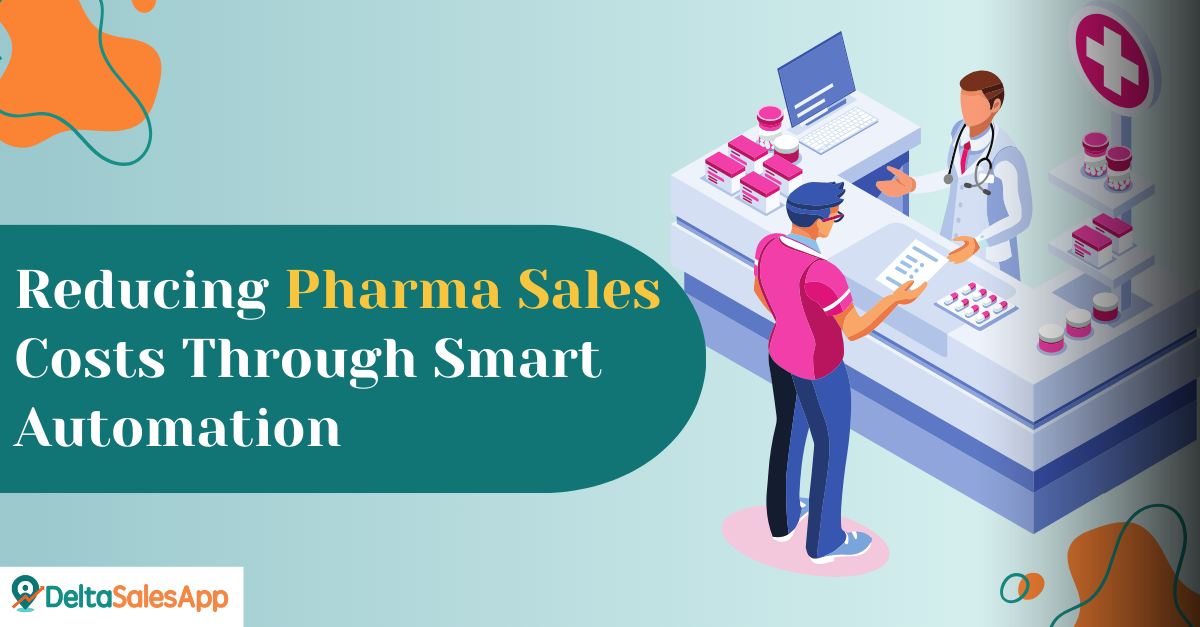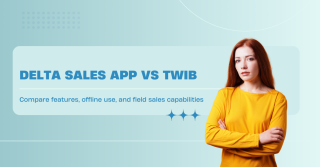Reducing Pharma Sales Costs Through Smart Automation

Pharmaceutical sales is a highly competitive industry with rising operational costs, strict compliance requirements, and an increasing need for efficiency. Companies must find ways to optimize sales strategies while reducing expenses to maintain profitability.
One of the most effective solutions is smart automation—leveraging technology to streamline processes, minimize errors, and cut costs. From AI-driven customer relationship management (CRM) to automated order processing, automation is transforming pharma sales.
This blog explores key cost-reduction strategies and how automation plays a crucial role in driving efficiency.
Challenges in Pharma Sales Cost Management
Pharmaceutical sales teams face multiple financial challenges, including:
-
High operational expenses—salaries, travel costs, and marketing expenses add up quickly.
-
Manual inefficiencies – Traditional sales processes are time-consuming and prone to errors.
-
Regulatory compliance burdens—Meeting legal requirements requires additional resources.
-
Lack of sales data insights—Poor data management leads to inefficiencies and missed opportunities.
Key Strategies for Cost Reduction Through Automation
Strategic Bulk Purchasing and Procurement Optimization
Buying in bulk lowers per-unit costs and strengthens supplier relationships, enabling better deals and long-term contracts. Automation in procurement streamlines purchasing, improves supplier selection, and ensures efficient stock management, reducing unnecessary purchases and wastage.
Supply Chain Streamlining and Inventory Optimization
Real-time inventory tracking prevents stockouts and excess inventory. Automation, combined with predictive analytics, improves demand forecasting, ensuring efficient inventory levels and reducing storage costs.
Integrating Automation and Advanced Technology
AI tools enhance lead generation and customer segmentation, automating the sales process. Automated Customer Relationship Managemnet (CRM) systems streamline communication, follow-ups, and customer interactions, saving time and ensuring timely engagement with leads and clients.
Strategic Outsourcing and Partnership Models
Outsourcing logistics to third-party providers reduces internal costs for storage and transportation. Delegating non-core tasks like data entry and customer service to external agencies allows sales teams to focus on revenue-generating activities.
Value-Based Contracting and Pricing Strategies
Performance-based pricing ties costs to outcomes, ensuring that businesses only pay for actual value delivered. Automating contract analysis and negotiation using data-driven insights helps optimize pricing strategies, increasing profitability.
Optimizing Field Sales Operations
Automated route planning reduces travel time and fuel costs by optimizing sales visits, while GPS tracking enhances accountability, ensuring that sales teams follow efficient schedules and reducing fraudulent claims.
Digital Order Management
Digital order management systems eliminate paperwork, speeding up order processing and reducing errors. Automation enhances integration with suppliers, ensuring fast, accurate transactions and smooth coordination.
Automating Compliance & Regulatory Reporting
Digital record-keeping ensures accurate, up-to-date compliance with legal requirements, reducing manual effort and minimizing risks. Automation streamlines regulatory reporting, lowering the chances of penalties or late filings.
Understanding Smart Automation in Pharma Sales
What is Smart Automation?
Smart automation involves using AI, machine learning, and digital tools to optimize sales processes. It helps:
-
Streamline sales operations by automating routine tasks.
-
Enhance regulatory compliance with digital documentation.
-
Improve customer interactions through AI-powered chatbots and CRM platforms.
Advantages of Automation in Pharma Sales
Enhanced Precision and Accuracy—Automation reduces human errors in order processing, compliance reporting, and customer data management, ensuring higher accuracy.
Improved Data Management—AI-driven analytics provide real-time insights into sales trends, customer behavior, and inventory management, enabling data-driven decision-making.
Increased Speed and Productivity—Automated processes streamline repetitive tasks, allowing sales teams to focus on strategic activities and improve overall efficiency.
Compliance and Quality Assurance—Digital record-keeping and automated reporting help pharma companies adhere to stringent regulatory requirements with minimal effort.
Maximized Cost Savings—By optimizing sales operations and reducing manual inefficiencies, automation significantly cuts operational expenses and improves profitability.
Steps to Implement Smart Automation in Pharma Sales
-
Assess current sales processes—Identify inefficiencies and automation opportunities.
-
Choose the right automation tools—CRM, AI analytics, and GPS tracking systems.
-
Train the sales team—Ensure smooth adoption and usage of automation tools.
-
Measure success—Track key performance indicators (KPIs) to optimize strategies.
Conclusion
Automation is revolutionizing pharmaceutical sales by reducing costs, improving efficiency, and ensuring compliance. Companies that embrace smart automation can significantly enhance productivity and profitability. By integrating AI-driven solutions, digital order management, and data analytics, pharma sales teams can stay ahead of the competition while maximizing cost savings.
FAQs
Q1: How much can automation reduce pharma sales costs?
Automation can reduce costs by 20-30% through optimized sales processes, reduced travel expenses, and efficient resource management.
Q2: Is automation suitable for small pharma businesses?
Yes, even small businesses can benefit from affordable automation tools like cloud-based CRMs and digital order management systems.
Q3: Can automation replace human sales reps?
No, automation enhances efficiency but does not replace the need for human sales expertise. It allows reps to focus on higher-value tasks like relationship-building and strategy.
Q4: How long does it take to see cost-saving results after implementing automation?
Most companies start noticing significant cost savings within 3 to 6 months, depending on the level of automation implemented.
By leveraging smart automation, pharma companies can drive efficiency, reduce expenses, and remain competitive in the evolving healthcare landscape.








